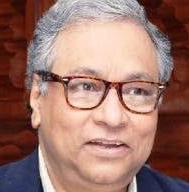
What exactly is wrong or right about the BBC documentary India: The Modi Question that is causing such an endless storm, for different reasons, in the UK, in India and now in Australia?
The BBC’s telecast in January immediately triggered highly inflammable memories of communal riots in Gujarat in 2002, when Narendra Modi was the chief minister. These wounds were just too raw to be touched, even after Modi’s professionals had adroitly managed to cover them up, with the assistance of several legal eagles and the indulgence of judicial officials and those even higher up. Modi has been pronounced “not guilty” on certain specific narrow charges, for the present and to the extent possible, but many other questions continue to fly, all around, thick and fiery. This riot, in which over a thousand people – mainly Muslims – were slaughtered simply refuses to behave and lie still in its grave.
While many saw mischief in the timing of the release of the BBC documentary, a year or so before India heads for its decisive but surely nasty polls in 2024, others lauded the broadcaster for its boldness and persistently upholding human rights, come what may. The BBC claimed it had recently obtained access to a previously unseen and confidential UK government report produced after the riots that had blamed Modi unequivocally for the violent riots. According to Jack Straw, who was the UK’s foreign secretary in 2002, it bore the “hallmarks of ethnic cleansing”. The Indian government screamed at the BBC instantaneously and a very undiplomatic foreign office went the extra mile to heap its choicest of invectives on it. Then, the Indian government banned the documentary with its typically high-handed Modiesque brusqueness and twirled the knife in thereafter with a harassing raid on BBC offices in India. How utterly democratic!
The western world – which extends to Australia and New Zealand in its worldview sweep – was aghast at the brazen display of “oriental despotism” that had never been associated with India since 1947. To cap it all, a high court in India issued notice to the BBC for criminal defamation, just when Modi touched the soil of Australia. Uncanny timing, but why? One reason could be the decision of a large, influential section of Australia’s politics and civil society to screen this very BBC documentary in Parliament itself, which is quite a knockout message to Modi that all is not well. And Modi doesn’t take kindly to such messages.
Also read: Secrecy Over Ticketing But Empty Seats: My Experience of Modi’s Sydney Event
Modi’s visit to Australia was almost self-invited, as the Quad meeting for which he was invited was cancelled. But why did Modi continue his trip anyway? He had hugged Australian Prime Minister Anthony Albanese just two months ago during the latter’s visit to India where they had “long, productive deliberations to further the India-Australia friendship”. Albanese is a rare “western” leader who is in thrall of Modi, especially after he was driven around the colosseum of the Narendra Modi stadium by Narendra Modi himself – on his imperial chariot, with trumpets and triumph. Modi desperately needs some leader of the democratic world whose eyes do not remind him constantly of his human rights record – past, present or threatened. He is fed up with “western” institutions and civil society bodies constantly shaming him on this count, and releasing, at annoying intervals, some report or statistic to prove a point.
When Albanese played to the large number of his “Indian” voters in the Parramatta area of his constituency by shouting “Modi is the boss” (hopefully, not Mario Puzo’s), he was providing just the beta blockers that a demoralised Modi-hyping media in India was looking for, after Karnataka rejected Modi, so resoundingly. What the TV clips of the near-delirious crowds of Sydney did not, however, reveal was that (like Houston) they were packed with overseas Indians, who are invariably rallied by the Indian mission and pro-India organisations. Too long have these souls suffered stares and racist taunts from “locals” abroad and Modi is surely the first Indian leader to nurse their silent hurt and manipulate it for his ends. Indians in Australia and Hindu temples in particular have suffered a spate of attacks in the recent past and the Modi event helped rally the angst.
The other event of greater consequence, the filming of the “banned” BBC documentary on Modi in Australia was organised by prominent Australian senators of the Greens party, Amnesty International, overseas ‘Hindus for Human Rights’ and a host of other activist organisations that are aghast at the rather obsequious attitude of Albanese. The panel discussion led by rather articulate sufferers of Modi’s undemocratic regime also hit the point home that Australia should have learnt from its futile “China lesson” that kowtowing to someone who just does not respect human rights is not only a mistake, but is downright dangerous. Libertarians of the world need to stand beside each other, more so when a socio-political culture of democracy falters somewhere, because it is hijacked for a while, maybe a long while, by demagogues and autocrats.
Jawhar Sircar is a member of the Rajya Sabha. He has been culture secretary and CEO of Prasar Bharati.






